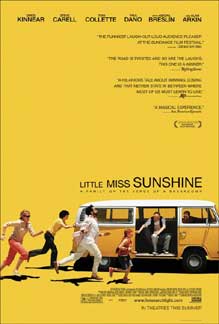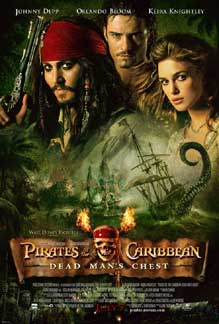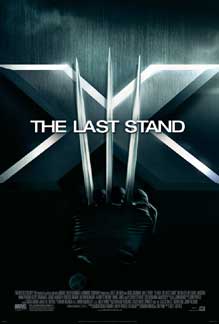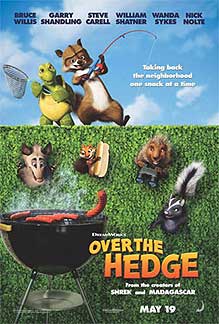Before I saw this movie I only knew two things about George Reeves: one, he played Superman on TV during the 1950s in an incredibly cheesy looking show that was recycled to UHF TV stations during my childhood 20 years later, and two, he was dead (sort of a natural outgrowth, I’ always assumed, of being “middle aged” during the 1950s).
Hollywoodland is the fictional “what if…” of Reeves’ suicide in 1959. Whether or not Reeves was actually having an affair with the wife of an MGM studio executive I don’t know. Whether Reeves (Ben Affleck who would be wise to take a good look at the raw footage from this film should he ever decide to let himself go ala John Travolta) was actually the only marginally charming narcissist he is portrayed to be is also a mystery. What I do know is that while Hollywoodland is being sold as yet another dirty, gritty L.A. film noir it is actually a meditation on fame whose timeliness is almost unseemly.
Much as been made in the entertainment press of the symmetry of having a slightly washed up star (Affleck) play a man who believed he was destined for more than the cheap theatrics of a 1950s kids television show. The Reeves of Hollywoodland had dreams of being a great star. He certainly had the squared-jawed handsomeness that Hollywood was demanding during those times. Whether or not he had the talent who knows. His career seems to be a series of either supporting roles or low-budget productions; enough to make a living but not enough to have the photographers at Hollywood’s hot spots clamoring for his picture as he ate dinner.
Within the plot of the film Reeves is portrayed ably, though as a bit of a cipher, by Affleck. Since the bulk of the audience’s encounters with Reeves are told in flashback, either via the imagination of Louis Simo (Adrien Brody), the low-rent private detective who sees investigating Reeves’ suicide as a murder as a way to get his own publicity and move up in the world, or via straight flashback based on Simo’s interviews, we’re not really given any insight into what the man actually wanted but only what those around him thought of him and his desires.
In many ways Simo’s story is a parallel of Reeves’: low-rent in his profession, had a chance at something steady but didn’t make the most of it. Simo is always scraping, literally finishing the lunch of one of his more successful former colleagues early on in the film.
Simo’s poking into Reeves’ life turns up some interesting tidbits: Reeves’ multi-year relationship with Toni Mannix (Diane Lane doing “older woman” with aplomb despite the fact that she’s only 7 years older than her co-star) which was sanctioned by her studio-executive husband Edgar (Bob Hoskins, whose American accent must be so good by now he does it in his sleep) who also has his own relationship on the side. It also turns up the whiff of a cover-up. Is Mannix using the LAPD to keep his dirty laundry a secret? How exactly is he “fixing” the problems his stars get into?
The plot is largely immaterial except for the fact that it takes us ever spinning through Reeves’ and Simo’s downward spirals as each man tries to grasp the fame, accolades, and attention he can never quite reach. In a world of American Idol where Andy Warhol’s dictum about fame seems to play out every single night on TV it is the whys of the grasping for recognition that are most compelling. At one point late in the film Simo, still working the murder angle, pays a visit to Reeves’ agent Art Weissman (Jeffrey DeMunn) to inquire about what Reeves had in the pipeline and who might have wanted him dead. Weissman’s slightly resigned, bemused take on his client pretty much sums up both Reeves’ problem and the problem of modern pop culture “he had the Superman thing and it should have been enough…enough for a life, you know, but he wanted something bigger, something more.” In a world where people are constantly reaching for and lured by the promise of fame they have no hope of achieving “enough for a life” is a concept worth pondering. 3 popcorns out of 5

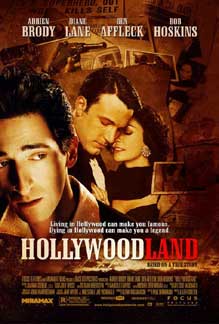
Visit the official site (Requires Flash)

